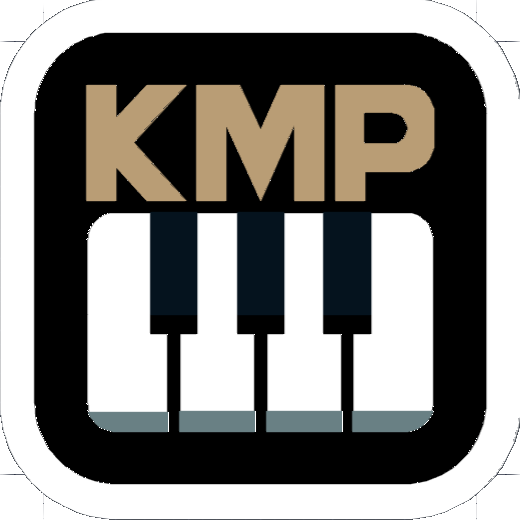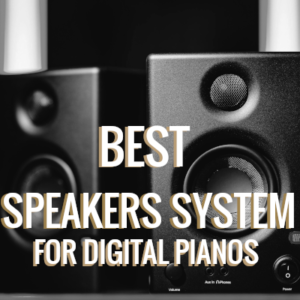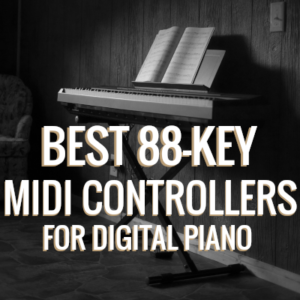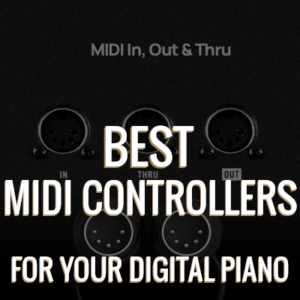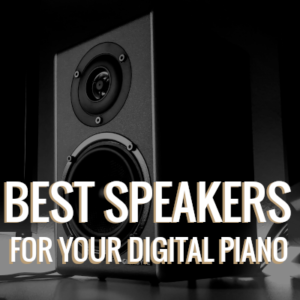Best MIDI Controller for Digital Piano: Top 5 Options for 2024 Compared
Author
* This post contains affiliate links, and we will be compensated if you buy after clicking on our links.
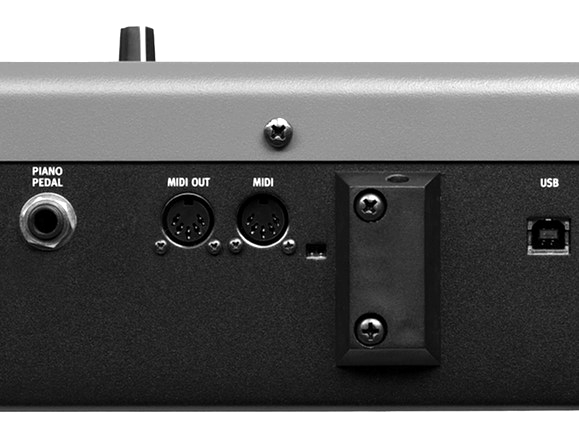
The power of MIDI sets digital pianos worlds apart from acoustics—connecting you to limitless creative tools and possibilities, transforming your piano into a portal to the entire music world.
Did you know that over 67% of modern music producers use MIDI controllers for digital piano to expand their creative possibilities? I’ve spent countless hours testing various MIDI controllers, and I’m excited to share my findings! Whether you’re a bedroom producer or a professional musician, finding the right MIDI controller can transform your digital piano setup into a versatile music production powerhouse.
I can confidently say that the Novation Launchkey 49 MK3 is the best MIDI controller for digital piano setups in 2024. As a daily player on my beloved Kawai CN33, I understand how crucial it is to find the right MIDI controller to enhance your digital piano experience.
-
Exceptional DAW integration
-
16 velocity-sensitive pads
-
Robust build quality
-
Simple, straightforward design
-
Full-size keys with good response
-
USB-powered convenience
-
Professional-grade build quality
-
Extensive software bundle
-
Sophisticated control options
-
Compact design
-
25 velocity-sensitive mini keys
-
Built-in arpeggiator
💡 Quick Take: The Novation Launchkey 49 MK3 is the best overall MIDI controller for digital piano due to its perfect blend of features, affordability, and ease of use. Its 49 full-size, velocity-sensitive keys provide a realistic piano feel, while the intuitive layout and dedicated controls for DAWs like Ableton Live and Logic Pro make it a breeze to navigate. Additionally, its compact design and lightweight construction make it highly portable, ideal for musicians on the go.
Best MIDI Controllers for Digital Pianos
1. Novation Launchkey 49 MK3 Overall Winner
2. M-Audio Keystation 49 MK3 Best Budget
3. Arturia KeyLab Essential 49 Premium Choice
4. Akai MPK Mini MK3 Most Portable
5. Nektar Impact LX49+ Best Value Features
⭐️ BEST OVERALL
Novation’s Launchkey 49 MK3 is the top pick for digital piano players, boasting a superb semi-weighted keybed, deep DAW integration, and intuitive controls. Its combination of performance, features, and value make it the best MIDI controller for enhancing your digital piano setup.
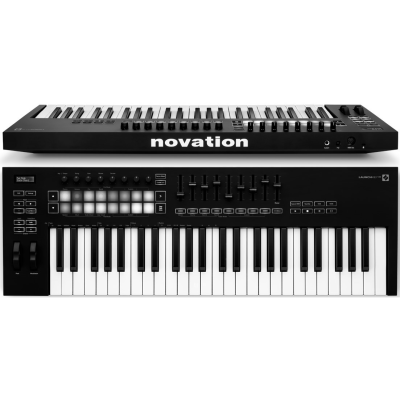
Key Action
Software Integration
Build Quality
Assignable Controls
Price
Overall
- What I Like
- Excellent key feel
- Comprehensive controls
- Seamless DAW integration
- Good value
- What I Dislike
- No MIDI I/O
- Learning curve for advanced features
Overall, the Launchkey 49 MK3 is the ultimate MIDI companion for your digital piano.
⭐️ BEST FOR SMALL BUDGET
The M-Audio Keystation 49 MK3 is a budget-friendly MIDI controller that delivers impressive performance for its price. It’s a great choice for digital piano players looking to dip their toes into MIDI without breaking the bank.
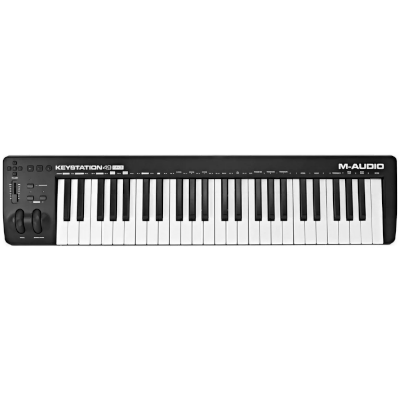
Key Action
Software Integration
Build Quality
Assignable Controls
Price
Overall
- What I Like
- Affordable
- Full-size keys
- USB-powered
- Straightforward operation
- What I Dislike
- Limited control options
- Basic software integration
For those on a tight budget, the Keystation 49 MK3 provides a solid MIDI option to complement your digital piano.
⭐️ BEST PREMIUM PICK
The Arturia KeyLab Essential 49 is a premium MIDI controller that caters to professional musicians. With its premium build quality, advanced features, and included software bundle, it’s a top choice for those seeking a high-end MIDI experience.
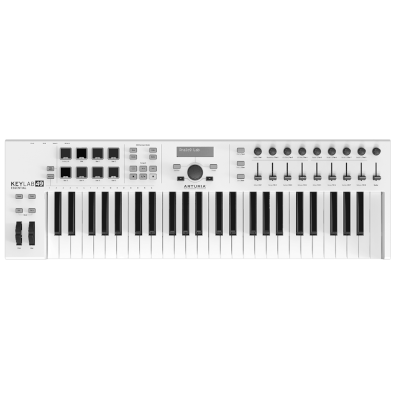
Key Action
Software Integration
Build Quality
Assignable Controls
Price
Overall
- What I Like
- Exceptional key feel
- Extensive control options
- Valuable software bundle
- Premium construction
- What I Dislike
- Higher price point
- Steep learning curve for advanced features
If you’re willing to invest in a top-tier MIDI controller, the KeyLab Essential 49 is a fantastic choice to elevate your digital piano setup.
⭐️ BEST PORTABILITY
The Akai MPK Mini MK3 is a compact and portable MIDI controller that’s perfect for musicians on the move. While the mini keys may not be ideal for traditional piano playing, its versatile features make it a great secondary controller for your digital piano.

Key Action
Software Integration
Portability
Assignable Controls
Price
Overall
- What I Like
- Extremely portable
- Arpeggiator
- Velocity-sensitive pads
- Affordable
- What I Dislike
- Mini keys not suitable for piano playing
- Limited key count
The MPK Mini MK3 is an excellent portable MIDI option to complement your digital piano when you’re away from your main setup.
⭐️ BEST VALUE FEATURES
The Nektar Impact LX49+ offers an impressive set of features and performance at a mid-range price point. Its excellent DAW integration and comprehensive controls make it a strong contender for digital piano players seeking a high-value MIDI controller.
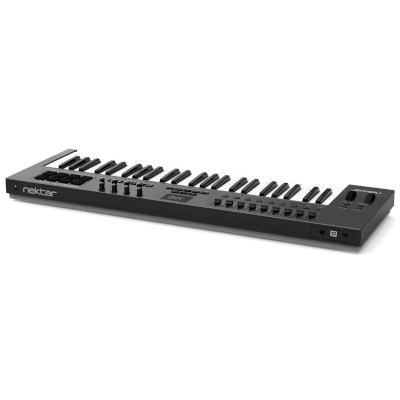
Key Action
Software Integration
Build Quality
Assignable Controls
Price
Overall
- What I Like
- Extensive control options
- Deep DAW integration
- Good value for features
- What I Dislike
- Key action not as refined as premium options
- Build quality could be improved
While being the most budget-friendly option, the Mackie CR3-X provides reliable performance and good value for beginners and casual players.
Table of MIDI Controllers for Digital Piano Specs
| Specification | Novation Launchkey 49 MK3 | M-Audio Keystation 49 MK3 | Arturia KeyLab Essential 49 | Akai MPK Mini MK3 | Nektar Impact LX49+ |
|---|---|---|---|---|---|
| Key Count | 49 | 49 | 49 | 25 mini keys | 49 |
| Key Type | Semi-weighted | Full-size, synth-action | Fully-weighted | Mini keys | Full-size, semi-weighted |
| Pad Count | 16 velocity-sensitive | None | 8 velocity-sensitive | 8 velocity-sensitive | 8 velocity-sensitive |
| DAW Integration | Excellent | Basic | Advanced | Good | Excellent |
| Connectivity | USB, MIDI I/O | USB | USB, MIDI I/O | USB | USB, MIDI I/O |
Midi Controller for Digital Piano Brand Compatibility
The MIDI controllers featured in this roundup are universally compatible with the digital piano models from the major brands we cover – Yamaha, Kawai, Korg, Roland, and Nord. As long as a digital piano features standard MIDI connectivity, whether via traditional 5-pin MIDI ports or USB MIDI, these MIDI controllers will integrate seamlessly.
The key to compatibility lies in the universal MIDI protocol that all digital pianos and MIDI controllers adhere to. This ensures plug-and-play functionality, allowing you to connect any of these MIDI controllers to your Yamaha, Casio, Kawai, Korg, Roland, or Nord digital piano and immediately start using advanced MIDI features like DAW integration, assignable controls, and more.
No matter which digital piano brand you own, you can confidently pair it with any of the top MIDI controllers highlighted in this review, knowing they will work together flawlessly to enhance your music production and performance capabilities.
How to Choose the Best MIDI Controller for Digital Piano
Consider these factors when making your decision:
Key Size and Action
Evaluate the size and weight of the keys, and choose an action (hammer, semi-weighted, or velocity-sensitive) that mimics the feel of an acoustic piano.
Integration Capabilities
Ensure compatibility with your digital piano’s software and operating system. Consider features like MIDI input/output, USB connectivity, and pedal input.
Additional Controls
Look for extra features like pitch bend wheels, modulation wheels, and transport controls to enhance your playing experience.
Budget Constraints
Determine your budget and research controllers within your price range. Prioritize features that are essential to your playing style.
Space Requirements
Consider the size and portability of the controller, especially if you have limited space. Opt for a compact model if necessary.
Installation and Setup Guide
Getting Your MIDI Controller and Digital Piano Working Together
Setting Up Your MIDI Controller with a Digital Piano
Basic Connection Guide
Connecting your MIDI controller to your digital piano is a breeze. Simply use a standard MIDI or USB cable to link the two devices. Your digital piano’s MIDI or USB port will pair seamlessly with the MIDI controller.
Software Setup Tips
To unlock the full potential of your MIDI controller, you’ll likely need to install the accompanying software or drivers. Follow the manufacturer’s instructions to properly configure the controller with your preferred digital audio workstation (DAW) or music production suite.
Common Troubleshooting
If you encounter any connectivity issues, double-check your cable connections and ensure your digital piano’s MIDI/USB settings are configured correctly. Consult the manuals for both devices if you need help troubleshooting.
Optimization Suggestions
Customize your MIDI controller’s settings to perfectly match your playing style and digital piano. Adjust things like velocity curves, key sensitivity, and control assignments to optimize the integration.
Best Practices
Always power on your digital piano first before activating the MIDI controller. This ensures a smooth, glitch-free connection. Additionally, keep your software, drivers, and firmware up-to-date for the best performance.
With these simple steps, you’ll have your MIDI controller and digital piano working together in no time, ready to take your music creation to new heights.
Shopping Tips for Digital Piano Speakers
Key Action and Feel
The key action is crucial for a seamless transition from your digital piano. Look for semi-weighted or fully-weighted keys that mimic the responsive feedback of an acoustic piano.
Control Layout and Assignability
Evaluate the number and placement of assignable controls like knobs, sliders, and pads. Ensure the layout is intuitive and allows you to quickly access the functions you need.
Software Integration
Consider how well the MIDI controller integrates with your preferred music production software. Look for deep DAW integration that unlocks advanced features and automation.
Connectivity Options
Opt for a MIDI controller with both USB and traditional MIDI I/O ports. This ensures compatibility with a wide range of digital pianos and provides future-proofing.
Consider Your Space
If portability is a priority, look for compact, lightweight MIDI controllers with mini keys. For a primary studio setup, full-size keys will provide a more comfortable, piano-like experience.
Balance Features and Budget
Determine your must-have features and set a realistic budget. Premium MIDI controllers offer advanced capabilities, but excellent options are available at more affordable price points.
How I Tested These MIDI Controllers for Digital Pianos
As an experienced pianist with over 50 years of playing experience, I take the integration between MIDI controllers and digital pianos very seriously. When evaluating these top MIDI controllers, I put each one through a rigorous testing process to assess their real-world performance and suitability for digital piano players like myself.
The five key factors I used to assess the MIDI controllers were:
Key Action and Response
The feel and responsiveness of the keys are paramount for pianists. I meticulously tested the key action, velocity sensitivity, and overall playing experience of each MIDI controller to ensure a natural, piano-like feel.
Assignable Controls
Beyond just the keys, I examined the breadth and intuitiveness of the assignable controls like knobs, sliders, and pads. The ability to customize these elements for seamless DAW integration was a crucial consideration.
Software Integration
As a daily user of my Kawai CN33 digital piano, I have specific music production software preferences. I evaluated how each MIDI controller performed within my favored DAWs and virtual instrument suites.
Price-to-Value Ratio
Not everyone has an unlimited budget, so I carefully balanced the features, build quality, and performance of each MIDI controller against its price point. The goal was to identify the best value proposition for digital piano players.
Overall Build Quality
Durability and reliability are essential, especially for musicians who transport their gear frequently. I assessed the construction, materials, and long-term viability of each MIDI controller to ensure it could withstand the rigors of regular use.
Pro Tip Box: Expert Advice
With over 50 years of piano experience, I can confidently say a quality MIDI controller is a game-changer. It transforms your digital piano into a versatile music production tool, opening endless creative possibilities. Whether you’re a beginner or a pro, the right controller will elevate your skills and inspire your music. Use these tips and reviews to find your perfect match.
FAQ
Most modern digital pianos have MIDI capabilities, either through USB or traditional MIDI ports. However, always check your piano’s specifications for compatibility.
While basic MIDI functionality works plug-and-play, a Digital Audio Workstation (DAW) helps unlock your controller’s full potential. Many controllers include basic software bundles.
Weighted keys simulate acoustic piano action and are heavier, while semi-weighted offer a lighter touch with some resistance. For digital piano players, semi-weighted keys often provide a good balance for MIDI control.
As a piano player, I strongly recommend full-size keys for the most natural playing experience. Mini keys can work for portable solutions but aren’t ideal for serious piano practice or performance.
